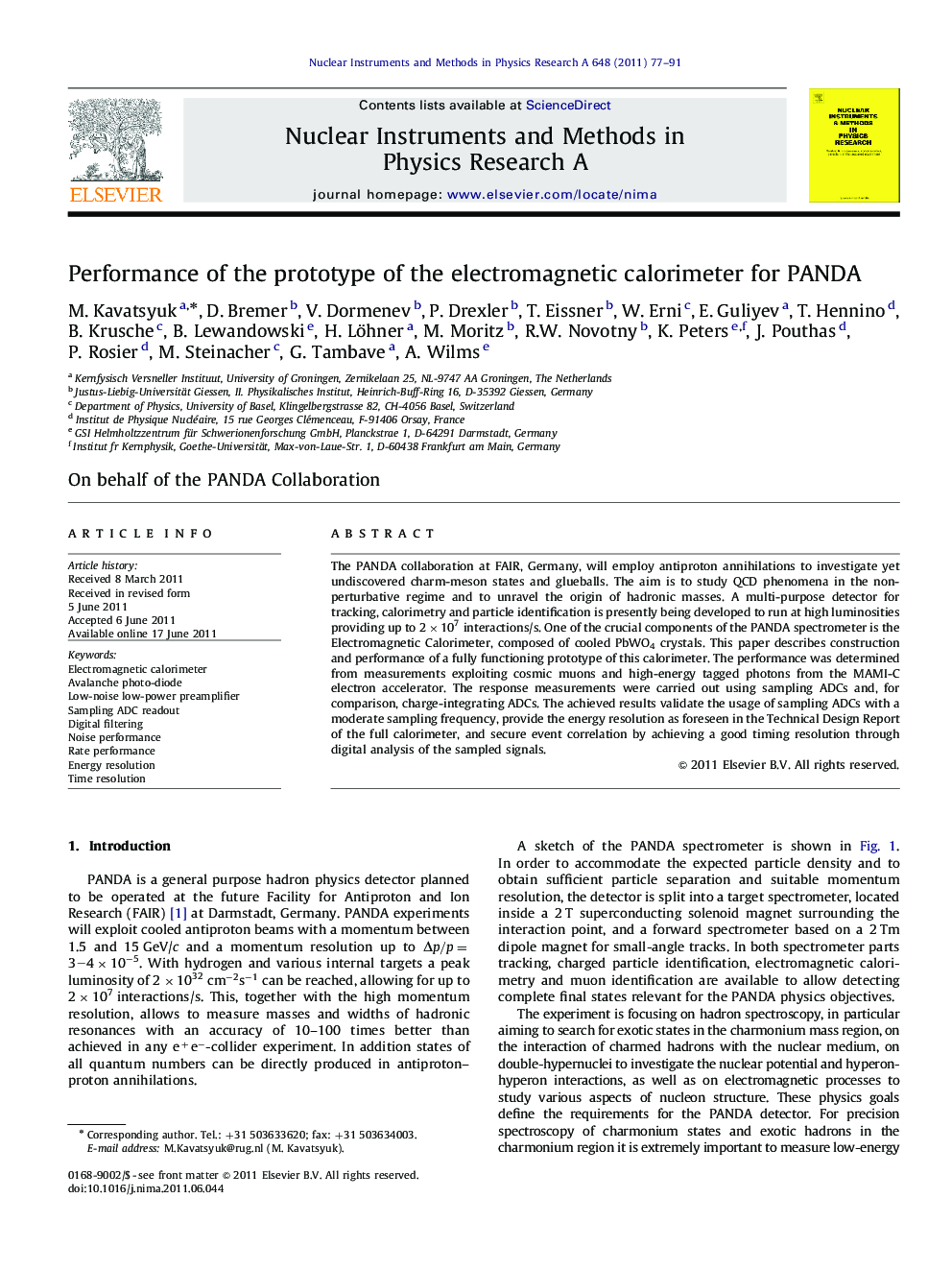| Article ID | Journal | Published Year | Pages | File Type |
|---|---|---|---|---|
| 10715719 | Nuclear Instruments and Methods in Physics Research Section A: Accelerators, Spectrometers, Detectors and Associated Equipment | 2011 | 15 Pages |
Abstract
The PANDA collaboration at FAIR, Germany, will employ antiproton annihilations to investigate yet undiscovered charm-meson states and glueballs. The aim is to study QCD phenomena in the non-perturbative regime and to unravel the origin of hadronic masses. A multi-purpose detector for tracking, calorimetry and particle identification is presently being developed to run at high luminosities providing up to 2Ã107 interactions/s. One of the crucial components of the PANDA spectrometer is the Electromagnetic Calorimeter, composed of cooled PbWO4 crystals. This paper describes construction and performance of a fully functioning prototype of this calorimeter. The performance was determined from measurements exploiting cosmic muons and high-energy tagged photons from the MAMI-C electron accelerator. The response measurements were carried out using sampling ADCs and, for comparison, charge-integrating ADCs. The achieved results validate the usage of sampling ADCs with a moderate sampling frequency, provide the energy resolution as foreseen in the Technical Design Report of the full calorimeter, and secure event correlation by achieving a good timing resolution through digital analysis of the sampled signals.
Keywords
Related Topics
Physical Sciences and Engineering
Physics and Astronomy
Instrumentation
Authors
M. Kavatsyuk, D. Bremer, V. Dormenev, P. Drexler, T. Eissner, W. Erni, E. Guliyev, T. Hennino, B. Krusche, B. Lewandowski, H. Löhner, M. Moritz, R.W. Novotny, K. Peters, J. Pouthas, P. Rosier, M. Steinacher, G. Tambave, A. Wilms,
